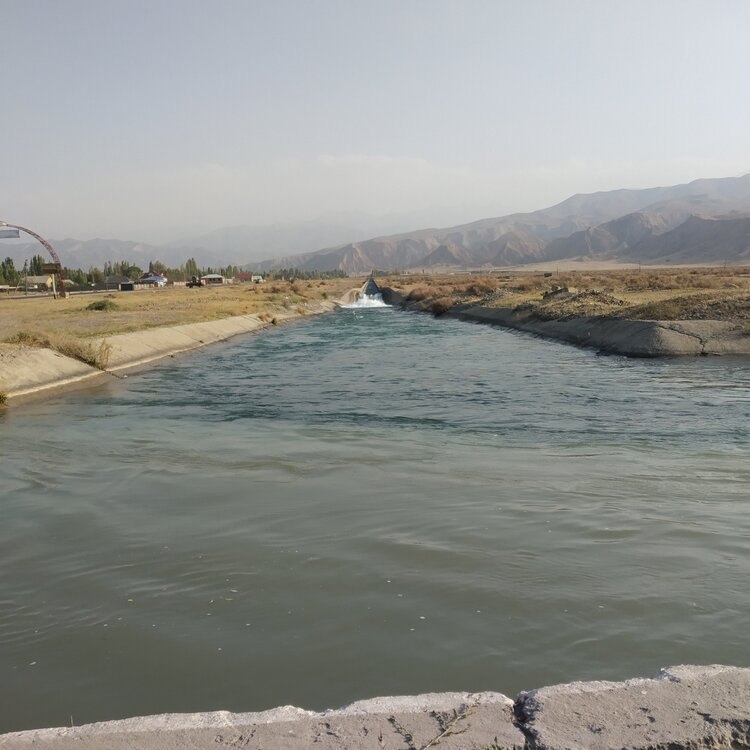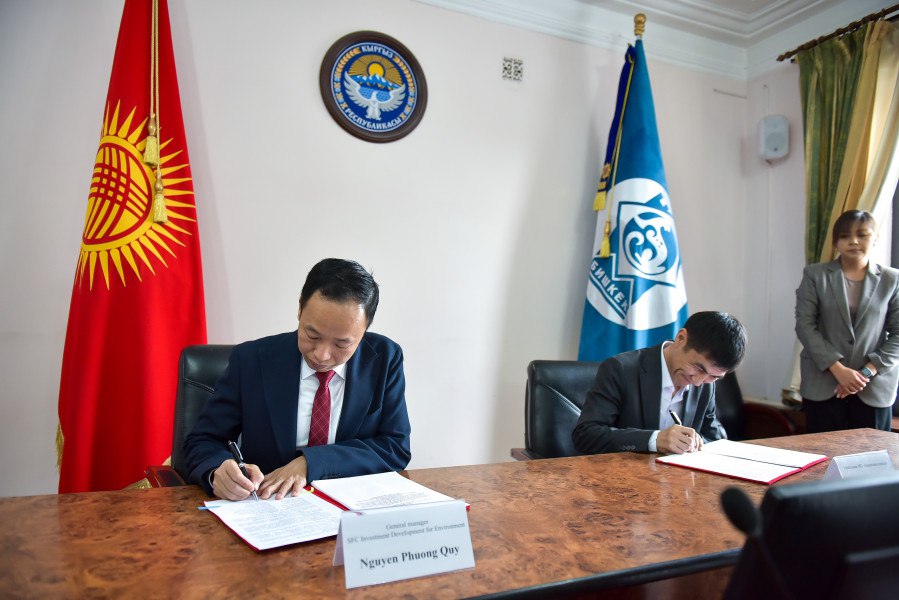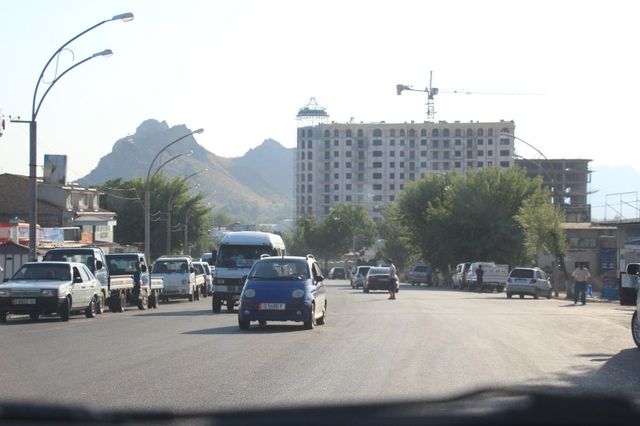OSH, Kyrgyzstan (TCA) — Michael Tatham, Director for Eastern Europe and Central Asia at the UK Foreign and Commonwealth Office (FCO), and Robin Ord-Smith, British Ambassador to the Kyrgyz Republic, on August 20 visited the Osh province in southern Kyrgyzstan to meet with Ahmadjan Mahammadov, Deputy Governor of Osh Oblast. The delegation also met with international organizations and visited AKF/MSDSP KG project sites in Aravan district, the British Embassy to the Kyrgyz Republic said.
In Aravan district they visited the Kyrgyz-Aryk irrigation canal, which was rehabilitated under the project ‘Reducing conflict over water and pastures in Kyrgyzstan and Tajikistan’ with support from the British Embassy to the Kyrgyz Republic. In addition, they met with representatives of the District Water Department, local communities members, local self-government authorities (Aiyl Aimak (AA)).
The total length of the Kyrgyz-Aryk canal is 39.1 km, passing through the territory of Chek-Abad AA and Yusupova AA. This canal serves 1794 hectares of agriculture land, covering more than 2,800 households in Aravan district. Agriculture is the main source of income for Chek-Abad and Yusupova communities. With proper irrigation, farmers can harvest two crops a year.
Rehabilitation of the Kyrgyz-Aryk canal created conditions for improved crop production, reduced conflicts between farmers over irrigation water, and decreased the threat of seasonal floods for 100 households and 1 secondary school.
They were accompanied by Dr Shamsh Kassim-Lakha, AKDN Resident Representative for the Kyrgyz Republic, Mr. S. Jalaluddin Shah, Chief Executive Officer Aga Khan Foundation Kyrgyz Republic and Mr. Talantbek Aldashov, Executive Director of the local Public Foundation Mountain Societies Development Programme in Kyrgyzstan (MSDSP KG).
The UK Conflict, Stability and Security Fund (CSSF) was launched in April 2015. The CSSF pools new and existing resources from across the UK government into a larger fund of £1 billion, under the strategic direction of the National Security Council (NSC). It brings together under one mechanism the UK’s contribution to multilateral peacekeeping, security and defence activities worldwide. The CSSF for Central Asia is overseen by the Regional Conflict Prevention Adviser and a Programme Manager based in the British Embassy Bishkek.
From April 2016 till March 2020 the programme has around £5m per annum of funding, focused on Kyrgyzstan and Tajikistan and themes such as improving cross-border cooperation, natural resource management, livelihoods opportunities and the rule of law.
The Kyrgyzstan Mountain Societies Development Support Programme (MSDSP KG), an initiative of Aga Khan Foundation, is a locally registered public foundation which seeks to improve the livelihoods of select communities in Kyrgyzstan’s mountain areas. To this end, MSDSP KG implements a range of integrated interventions in rural development, education, and health which converge in villages and are implemented in collaboration with and between community-based groups and local government authorities. Disaster risk reduction, enhancing local governance, and improving climate change resilience are cross-cutting themes across MSDSP KG’s work. MSDSP KG’s core programme area includes the mountainous districts of Alai, Aravan, Chong-Alai, Kara-Su, Nookat, Kara-Kulja, Uzghen and Osh city in Osh oblast as well as Naryn, At-Bashy, Ak-Zala, Dzhumghal, Kochkor districts in Naryn oblast, in Jalal-Abad oblast Kerven (Aksy) district, in Batken oblast Leilek, Batken, Kamdanjai districts and Chui oblasts Alamudin district covering a total population of more than 520,000 people.









